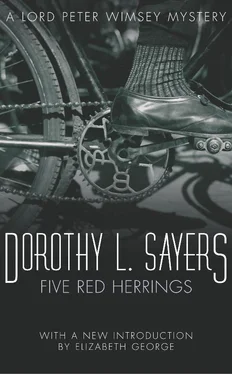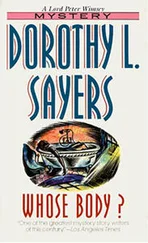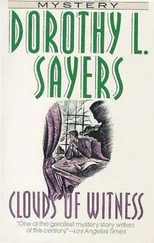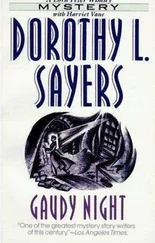‘It’s a wee bit groggy here and there,’ he said, ‘but it would probably pass on a casual inspection. Now, there’s only one thing to do, and that is, to get it back into the hands of the railway company. I’d better take only one witness to this. We don’t want to create a sensation.’
The Inspector was chosen to accompany him, and, taking a taxi, they bustled down to St. Enoch Station. Here Wimsey inquired, in a fussy manner, for the collector who had been on duty when the 2.16 came in from Dumfries. The man was pointed out to him at one of the barriers. Wimsey, wreathing his features into a kind of peevish smile, approached him with an air of worried kindliness.
‘Oh, good evening. I think you were at the barrier when I came in on the 2.16 this afternoon. Now, do you know that you let me get past without giving up my ticket? Yes, yes, he-he! I might have been defrauding the company and all that. I really think you ought to be more careful. Yes. I’m a shareholder on this line, and my cousin is a director, and I do think it’s dreadfully careless. There’d be an inquiry when they found a ticket short at the audit-office, of course, but, you know, he-he. I could have escaped by that time, couldn’t I? Tut, tut — no wonder dividends go down. But I don’t want you to get you into trouble, my good fellow, so I’ve brought you the ticket, and if I were you I’d just slip it in with the others and say no more about it. But you’ll be more careful in future, won’t you?’
During this harangue, which was poured out all in one breath, allowing no time for reply, the ticket-collector’s face changed gradually from weary courtesy to astonishment and from astonishment to anger.
‘Eh, sir,’ said the man, the moment he could get a word in edgeways, ‘I dinna ken what ye’ll be up to, but I’ll no be had twice that way within the fortnight.’
Inspector Macpherson here intervened.
‘My mon,’ said he, ‘I’m a police-officer, an’ I’ll trouble ye tae attend tae me. Have ye had this same thing happen tae ye before?’
The ticket-collector, now thoroughly alarmed, excused himself, stammered and then let out the whole story.
He had been on duty just about this time exactly a fortnight earlier. A gentleman had come, just as Wimsey had done, and produced a ticket, explaining that he had somehow slipped through the barrier without having to give it up. He (the collector) had examined the ticket, and seen that it had been properly clipped at Maxwelltown, Hurlford and Mauchline, and he had seen no reason to doubt the passenger’s story. Not wishing to be reprimanded for negligence, he had thanked the gentleman, taken the ticket and carried it to the clerk who was making up that day’s tickets for dispatch to the audit-office. The clerk had obligingly added the ticket to the appropriate bundle, and no more had been heard about it. The collector was sorry, but in view of the fact that the ticket appeared perfectly in order in every way, he had not thought he could be doing any harm. On being shown the photograph of Ferguson, the collector rather tentatively identified him as the passenger who had brought back the ticket.
The clerk confirmed the collector’s story, and all that remained was to visit the audit-office and obtain a view of the ticket itself. This, owing to the fact that there had already been one police inquiry about it, was fortunately still in existence. A careful examination showed a slight difference between the form of lettering and that of the correctly-punched tickets in the same bunch, and also that, whereas the figures purporting to have been punched on it at Mauchline were LMS 23 A, the other tickets bore the cipher LMS 23 B. It was explained that in each case the letter following the numerals denoted the particular collector who clipped the tickets on that train, each man having his own pair of clippers. The Mauchline numbers ranged from 23A to 23G. Therefore, while in itself the punch-mark LMS 23 Awas perfectly correct and in order it was suspicious that collector A should have punched only that one ticket out of all the tickets punched on that train. The previous inquiry had, of course, merely been directed to ascertain that the ticket had actually reached Glasgow, and therefore no special attention was paid to the punch-marks. Now, however, it was evident enough that the punch-marks were forgeries, very neatly executed.
On their return to the hotel, Wimsey and the Inspector were met by Dalziel, with additional confirmation. A man corresponding to Ferguson’s description had, on the Tuesday in question, visited a firm that sold book-binders’ tools, and purchased a set of letter-punches, similar in character and size to the letter on the tickets. He had explained that he was doing a little amateur book-binding, and wanted the punches for the spines of a set of volumes, which were to be labelled SAMUEL, 1, 2, 3 and 4 — this series containing all the letters and numbers necessary for faking the ticket-punches. The case against Ferguson was complete.
Wimsey was rather silent as they took the last train back from Glasgow.
‘You know,’ he said. ‘I rather liked Ferguson, and I couldn’t stick Campbell at any price. I rather wish —’
‘Can’t be helped, Wimsey,’ said the Chief Constable. ‘Murder is murder, you know.’
‘Not always,’ said Wimsey.
They came back to find Ferguson under arrest. He had endeavoured to take out his car — had found the magneto missing and had then attempted to make a bolt for the railway-station. Ross and Duncan had then thought it time to intervene. He had made no reply when arrested and cautioned, and was then in the Newton-Stewart police-station, awaiting examination. On being confronted with the forged tickets, he gave in, and, despite the warnings of the police, decided to tell his story.
‘It wasn’t murder,’ he said. ‘I swear to God it wasn’t murder. And I told you the truth when I said it didn’t happen in the least like your reconstruction.
‘Campbell came back at 10.15, just as I said. He barged into my place and began boasting about what he had done to Gowan and what he was going to do to Farren. He had been drinking again after he came in. He used filthy expressions to me and told me he was going to have it out with me, once and for all. He was damnably offensive, I tell you, it wasn’t murder. It was Campbell’s night to howl, and he got what was coming to him.
‘I told him to get out of my house. He wouldn’t go, and I tried to push him out. He attacked me, and there was a struggle. I’m stronger than I look, and he wasn’t sober. There was a rough and tumble, and I got a heavy punch in on his jaw. He went over and caught his head on the rounded top of the studio stove. When I went to pick him up, he was dead. That was at 11 o’clock.
‘Well, I was frightened. I knew I’d often threatened to do him in, and I’d got no witnesses. Here he was, in my house, dead, and I had certainly used force to him first.
‘Then I began to think that I might make it look like an accident. I needn’t go into the details. You seem to know them all. My plan worked perfectly, with one exception, and I got over that, and as a matter of fact, it did me good. I meant to start from Barrhill, but I missed the train, and then I hung on to old Ikey-Mo, which made my alibi much better, because it didn’t look, on the face of it, as though I could have got to Girvan in time, especially when I’d heard from Jock Graham that you knew I couldn’t have started from the Minnoch before 11.30.
‘It was bad luck, of course, that the body was found quite so soon. I knew there might be trouble over that rigor mortis business. Was that what put you on to the idea of murder in the first place?’
Читать дальше












